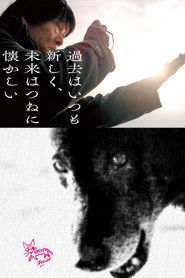One of the very last things this documentary tells us is that "this is the kind of man Daido is" after showing him taking time to sign fans' books. But what kind of man is he? Despite the 2-hour running time, we learn very little about this "legendary" photographer, and on all the questions that viewers might have, the director simply glides over onto the next success in his life. How has Daido changed in the past fifty years? How do others perceive this change? What is the role of photography today? How did the illness of his partner (memory-related) really affect his art? What can photography tell us about modern cities? How does he feel about so many cameras now being turned on him? What about all the photos of him taking photos? Does he believe his work was orientalised by the West? How does he feel about all of those trees being cut down? What does he think of film? Of the internet? Of Instagram? On all these fairly basic questions, this often-beautiful documentary remains frustratingly silent.
Between the on-the-nose intertitles (often repeating the last thing Daido said, elevating some casual aside into a pseudo-profundity…), the film seems more invested in creating a reverential snapshot of Daido Moriyama than a respectful or critical one, paradoxically leaving the viewer the room to surmise that there might be something ugly under the surface. (He's not even shown in "black-and-white"; simply white.) I think the banala reality is that, like the overwhelming majority of artists, they are simply bad at providing a critical exegesis of their own works and so simply asking them does not generate good 'content'. But it is the documentarian's job to find a solution to this, and they come up a little short here.
[Watched as part of the Cambridge Japan Film Fest 2023, itself part of the Japan Foundation Touring Film Programme 2023]

